The best thieves don’t limit their thieving grounds; they steal from anywhere.
So, while the first two posts in the Let’s Steal From series were about great examples of marketing (Epic Split and Follow The Frog), the third wasn’t — it was about a 150-year old information graphic. And this one is about stealing from great novelists.
More specifically, it’s about stealing from the great first lines of novels.
Marketers like you, me and the weird folks sitting next to you can learn a hell of a lot from great first lines. Because, when you think about it, the challenge that a novelist faces when writing that critically important first line is very much like the challenges we content marketers face every day:
We have to take someone from their world into ours.
We have to make them not just agree to come with us but want to come with us.
We have to do it fast.
We have a line (or maybe a paragraph) to take them from a cold state to a warm one; to make them put aside 97 competing bids for attention and focus on ours.
We have to make people lean forward, into our story instead of blinking or turning their heads 12 degrees to the right or picking up their iPad or coffee cup or Sonos controller or Instagram feed.
And, just as with novelists, your first lines are actually a long way down the reader/buyer’s journey. To get them to this point, you’ve already done so many things well.
They’ve chosen your story. Maybe they’ve bought or downloaded it – or filled out a form. They’ve found a free moment and negotiated a nano-slice of attention. They’ve cracked open the cover. Flipped past the title page and copyright page and…
This is your shot and you’ve earned it.
Win them here and you’ve got momentum on your side. They just might stay with you.
Lose them here and they’ll go away, tweet bad things about you and never come back.
In short: first lines matter. And the things we can learn from the great ones will not only make our own first lines better, they’ll make all of our content better.
[An inevitable caveat: not all great novels start with great first lines and not all great first lines lead to great novels. But the ones I’ve chosen both are and do.]
So let’s get going.
Some great first lines.
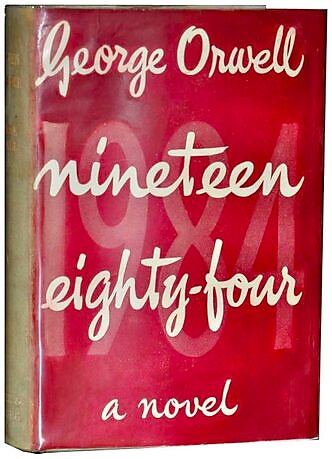
“It was a bright cold day in April, and the clocks were striking thirteen.”
— 1984, George Orwell
I love this line because it’s almost entirely banal (maybe the ‘cold/April’ is a slight twist) — until the last word turns the whole thing upside down.
With that last word, the sentence takes an abrupt turn and we know in an instant that we’re in another world. A familiar world – with days and clocks and seasons – but also a strange one.
There are even hints about the nature of this new world (the clocks are striking in unison; and time, one of civilisation’s most basic conventions, has somehow been re-calibrated).
All this in a sentence.
If you can stop reading at this point, you’re better off with Dan Brown*.
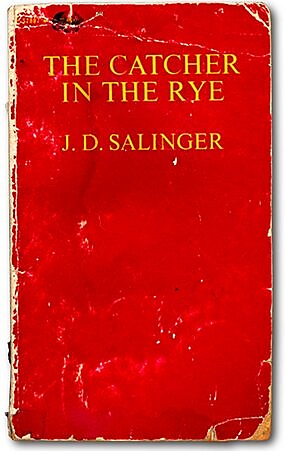
“If you really want to hear about it, the first thing you’ll probably want to know is where I was born, and what my lousy childhood was like, and how my parents were occupied and all before they had me, and all that David Copperfield kind of crap, but I don’t feel like going into it, if you want to know the truth.”
— Catcher in the Rye, J.D. Salinger
One of my favourite books also has one of my favourite openings.
This line plays against the conventions of all the expository opening lines through literary history. There’s also a hat tip to Dickens and, obliquely, to Huck Finn (another great opening).
But what I love most about it is that, in a few deft strokes, Salinger has his narrator, Holden Caulfield, standing right in front of you, fully-drawn, in all his adolescent glory.
And you know two things straight away: that this won’t be a conventional narrative; and that your guide will be a hoot.
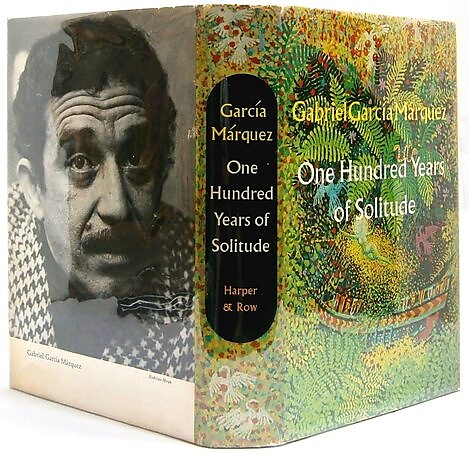
“Many years later, as he faced the firing squad, Colonel Aureliano Buendía was to remember that distant afternoon when his father took him to discover ice.”
— One Hundred Years of Solitude, Gabriel García Márquez
Wow.
We’ve got a man facing a firing squad (it will be two hundred or so pages before we know why).
We see that, moments before his violent death, he’s calm enough to reminisce about a ‘distant afternoon’ (a nice time/space-bending metaphor).
We learn that, in a hot climate before the invention of refrigeration, ice was a wonder that you’d travel to see.
We’ve got a sense of his warm relationship with is father.
In the space of a sentence, you belong to Garcia Márquez. You are his until he’s done with you. You are in the hands of a master.
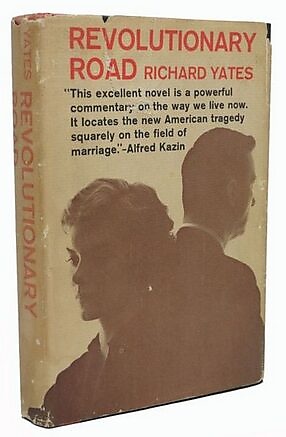
“The final dying sounds of their dress rehearsal left the Laurel Players with nothing to do but stand there, silent and helpless, blinking over the footlights of an empty auditorium.”
— Revolutionary Road, Richard Yates
Sometimes first lines create snapshots; frozen moments that stand for the entire novel. This is one of those.
It’s a picture as theatrical as the scene it describes and it’s the perfect metaphor for Yates’s bleak world view. (All the world may be a stage and all the men and women may be merely players, but, for Yates, there’s not even anybody in the audience.)
This opening line collects enough cold, grim words to overwhelm a double-dose of Seroxat: ‘final’, ‘dying’, ‘nothing’, ‘silent’, ‘helpless’, ’empty’… Little Miss Sunshine it ain’t (despite the cheerily-named Laurel Players).
We’re about to be dragged through a sad story of flawed people stumbling through dysfunctional relationships – ‘silent, helpless and blinking’. And it’s going to be great.
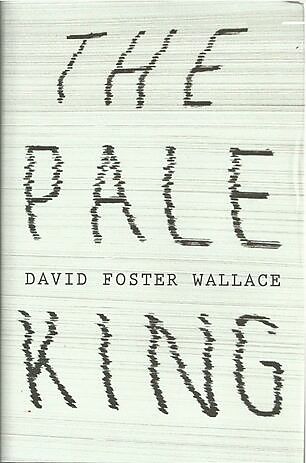
“Past the flannel plains and blacktop graphs and skylines of canted rust, and past the tobacco-brown river overhung with weeping trees and coins of sunlight through them on the water downriver, to the place beyond the windbreak, where untilled fields simmer shrilly in the a.m. heat: shattercane, lamb’s‑quarter, cutgrass, sawbrier, nutgrass, jimsonweed, wild mint, dandelion, foxtail, muscadine, spinecabbage, goldenrod, creeping charlie, butter-print, nightshade, ragweed, wild oat, vetch, butcher grass, invaginate volunteer beans, all heads gently nodding in a morning breeze like a mother’s soft hand on your cheek.”
— The Pale King, David Foster Wallace
This is not only a fantastic opening line, it’s also the saddest first line in all literature. Because the novel that it starts was never finished: its author, David Foster Wallace, killed himself before finishing it (a major tragedy not just for his wife, family and friends but for everyone who loves reading).
The sentence is silly-long, startlingly beautiful and laugh-out-loud-more-than-once funny.
The clumsy “a.m. heat” subverting the descriptive lyricism (typical Foster Wallace).
The endless list of wonderfully-named plants (“invaginate volunteer beans”?!).
‘A’ mother but ‘your’ cheek.
It’s a car scene, with the landscape sliding past; but not so fast that you skip the poetry (“coins of sunlight”) or the excruciatingly-detailed botany.
I don’t just need to read this novel, I grieve that I can’t. That no one ever will.
—–
So now I have to translate all this genius back to the mercenary world of content marketing?
Well, I didn’t come this far to give up now (and I hope you won’t either):
What we can steal from these great opening lines
Confidence
We’ve said it many times (not least in our slideshare The Other C-Word: What Makes Great Content Marketing Great): confidence is the most important signal your content marketing can send – and the only attribute that all great marketing shares.
All these first lines signal supreme confidence. In just a few words, you know you’re in great hands and you’re ready to go wherever they lead.
Surprise
Attention is the gateway drug of content marketing. You can’t get people addicted without it.
Surprise isn’t the only way to earn attention but it’s a powerful way. And it happens when you understand the unwritten conventions of the context of this particular engagement – then break (or bend) those conventions.
Great opening lines (like the Orwell and the Salinger) often surprise by playing against convention.
Intrigue
Often, great openings plant seeds. They let you know that something is coming but they don’t tell you what.
Content marketing should use this technique more: raise questions without immediately answering them. Trust your readers. Don’t pre-digest everything for them.
Invitation
Stephen King says that strong opening lines say to the reader, “Listen. Come in here. You want to know about this.”
The same message is critical to content marketing. It’s not afraid to say, “This is important.”
Voice
Great opening lines give you your first taste of the voice you’ll be listening to. That voice needs to be attractive: distinctive, interesting, specific and controlled.
Too much content marketing acts as if it’s simply an information-delivery mechanism. That’s why no one reads it.
Context
Openings also signal the world they’re in and the world view of the author.
Content marketing needs this, too. There are so many possible perspectives that any piece of content can come from. Pick one and let the reader see it early.
Happy stealing
All great work is an act of theft. If you feel bad about it, remind yourself that the people you’re stealing from stole from someone else (as did his or her victim and on and on).
With that in mind, it pays to steal from the best. From the people who inspire you the most.
And stealing from places beyond marketing keeps your stuff fresh and unexpected.
Have your own favourite first lines? Do share them below…
——————
* I don’t want to be a snob here — oh, fuck it, yes I do. This is the first line of Dan Brown’s The Da Vinci Code:
“Renowned curator Jacques Sauniere staggered through the vaulted archway of the museum’s Grand Gallery.”
In Language Log, Geoffrey Pullum points out that the use of the main character’s name, preceded by his or her job title (without a ‘the’) is an opening for an obituary not a novel.
Brown also wrote this:
“Captain Bezu Fache carried himself like an angry ox, with his wide shoulders thrown back and his chin tucked hard into his chest. His dark hair was slicked back with oil, accentuating an arrow-like widow’s peak that divided his jutting brow and preceded him like the prow of a battleship. As he advanced, his dark eyes seemed to scorch the earth before him, radiating a fiery clarity that forecast his reputation for unblinking severity in all matters.“
I rest my strong, chiseled and unblinkingly severe case.
Other posts in the Let’s Steal From series
In which we dissect great things to figure out what makes them so great:
Holiday Movies – No, really. Jess killed this.
The Simpsons – The masters of storytelling, character, humour… and stealing.
Seventeenth Century Explorers – And you thought marketers had a rough time convincing their audience.
The NBA – It was just basketball, then it took over the world.
Follow The Frog – Max Joseph and The Rainforest Alliance skip the guilt trip and get practical (and very, very funny).
Paths of Flight – a beautiful, understated film from GE Aviation
Epic Split – Jean-Claude van Damme nearly rips his tight jeans (and dies) for Volvo Trucks.
Rand Fishkin and Moz’s Whiteboard Fridays, which owns SEO.
Airbnb City Guides – Useful, optimized, crowdsourced.
Icelandair – A brilliant in-flight content experience.

Enjoyed this article?
Take part in the discussion


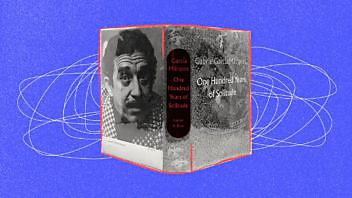

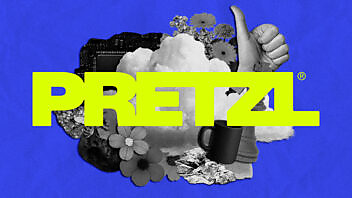



Comments
Harendra Kapur Velocity Partners January 4th, 2016
Dealers of Lightning (about Xerox PARC) by Michael Hiltzik has a lovely first line:
“It was April in California’s Santa Clara Valley, a fine time to be changing the world.”
Doug Kessler January 5th, 2016
Nice one.
Adam Velocity January 5th, 2016
“It was the day my grandmother exploded.” – The Crow Road, Iain Banks
Doug Kessler January 5th, 2016
Yikes.
Lydia Cockerham Skeleton January 5th, 2016
Thank you for reminding me of some of my favourite books and some of my favourite opening lines!
Here’s one I always think of, and that makes me smile every time:
“There was a boy called Eustace Clarence Scrubb, and he almost deserved it.” – The Voyage of the Dawn Treader, C. S. Lewis
Isn’t that brilliant?
Doug Kessler January 5th, 2016
Love it! Never heard that one.
Ken Carroll Ken Carroll January 5th, 2016
Doug,
I despair sometimes at how bad so much B2B content can be – the formulae, the echo chambers, the sheer monotony of so much of it.
But then I come across something fresh and original like this and it gives me hope.
You’ve done it again. Excellent idea and excellent insights.
Doug Kessler January 5th, 2016
Thanks Ken. Much appreciated.
Matt Godfrey Radix Communications January 5th, 2016
Great post, Doug. Made me think of ‘The Road’, where Cormac McCarthy’s first line creates a powerful emotional impact using very simple language, dragging the reader into the novel’s terrifying world:
“When he woke in the woods in the dark and cold of the night he’d reach out to touch the child sleeping beside him.”
Adam Velocity January 5th, 2016
Matt – agree on The Road. Great opening to an incredible book! Was a wreck reading it.
Doug Kessler January 5th, 2016
Fantastic opening — and you know just what kind of world you’re entering. Thanks.
Mark Tennant Edwards Communications January 10th, 2016
Found this article Doug but had to read the other three first; well done, very cool idea for your series.
The only thing I could come up with in the moment was the opening line to Fear and Loathing in Las Vegas by Hunter Thompson…it may not do anything for others but it ‘made me’ read on.
“We were somewhere around Barstow on the edge of the desert when the drugs began to take hold.”
Salinger, Orwell, Twain? No but the book was entertaining.
Looking forward to the next one..
Doug Kessler January 11th, 2016
Thanks Mark.
Someone on Facebook contributed the Fear and Loathing opening line, too! It’s a winner.
Glad you’re enjoying the series.
Tom M DirectionGroup January 11th, 2016
A Christmas Carol:
“Marley was dead, to begin with. There is no doubt whatever about that.”
Just a few words. But you’re left with a load of questions. Who’s Marley? How did he die? Why does it matter?
Doug Kessler January 23rd, 2016
Nice one Tom — thanks!
Gabriel Jiménez January 30th, 2016
Excellent point in this article about the force of the words that make you go on and keep reading, accept being the author’s accomplice, this same intelligence and good writting must be used when writing copy for an ad to catch people’ attention.
Below one of my favorites:
“Después de tantas horas de caminar sin encontrar ni una sombra de árbol, ni una semilla de árbol, ni una raíz de nada, se oye el ladrar de los perros”.
“After so many hours walking without finding nothing, not the shadow of a tree, nor the seed of a tree neither a root of anything, you hear the dogs bark”.
These are the first lines in a short story of my favorite Mexican authors and great influence to García Márquez’ work, Juan Rulfo. That story is part of a series of short stories called El Llano en Llamas, The Burning Plains. His use of the language, the words of people from rural parts of México, their view of life make this a great opening looking at the despair of promises not fulfilled.
Peter Econsultancy March 3rd, 2016
This is a great post, never thought about it to be honest.
I loved The Martian by Andy Weir, the opening line had me hooked and I read the book in three days…
I’m pretty much fucked. That’s my considered opinion. Fucked.”
Just about sums up the awaiting adventure.
Peter
Doug Kessler March 7th, 2016
What a great opening, Peter. Now I’ll have to go and read it (people tell me it’s better than the movie).
RajasekarKS XXXXX July 27th, 2016
Awesome first lines. Here’s one I read somewhere: When I was born, my parents were already dead. When you read it you know what’s coming after – some unusual story.
Doug Kessler July 29th, 2016
Spooky…